Tag: Electoral Bill
-
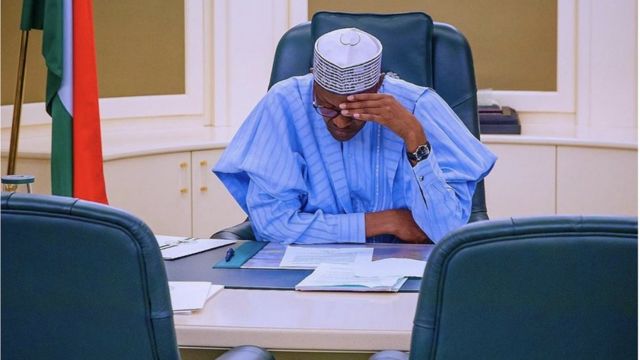
Electoral Bill: Throwing baby out with bath water, By Ehichioya Ezomon
By Ehichioya EzomonRights activist and Senior Advocate of Nigeria (SAN), Chief Mike Ozekhome, is surprised that “some Nigerians were surprised” that President Muhammadu Buhari refused to assent the Electoral Act Amendment Bill 2021 on December 21, 2021.Actually, Ozekhome, appearing on an African Independent Television (AIT) political programme the previous day, to clarify the deadline for Buhari to sign the Bill, vowed that the president would not append his signature to the piece of legislation.Comparing himself to ‘Nostradamus’ for “correctly predicting Buhari 110 per cent of the time in the past six and half years” of his presidency, Ozekhome passionately genuflected to the president, to prove him wrong, for once, and assent the Bill.But alas, Buhari didn’t disappoint Ozekhome! Nor most Nigerians, who often read the president’s response to national issues through his body language, and public views expressed by his kitchen cabinet or the “cabals” in and out of government.So, instead of returning to AIT to congratulate Buhari “for a job well done,” Ozekhome was at the station the next day, December 21, to declare to Nigerians, “I told you so!” The rest is history!Perhaps, the disappointment for Nigerians is that Buhari discarded other fine points in the Bill, such as electronic transmission of election results by the Independent National Electiral Commission (INEC), thus literally “throwing the baby out with the bath water.”Some of the reasons Buhari gave for withholding assent to the Bill are: * The prevailing (security) situation in the country * High cost of conducting direct primary elections * The security challenge of monitoring the elections * Direct primaries violate democratic rights of citizens * Direct primaries marginalise smaller political parties.These reasons are, at best, tenuous, simplistic and an afterthought derived by the president from the weeks-long forum-shopping for excuses to pin his refusal to sign the Bill.For example, didn’t Nigeria, at the height of deadly operations of Boko Haram in the North-east states of Adamawa, Borno and Yobe, conduct the 2015 elections without reports of security threats, as Buhari envisages for the processes of the 2023 elections?In these times of unprecedented banditry and kidnappings in the country, INEC and state government have conducted governorship and legislative, and local government elections, respectively.Isn’t Buhari’s refusal to sign the Bill, on account of “the situation in the country,” an admission of failure of his administration to secure Nigeria despite government’s assurances that the conditions have improved from their pre-2015 stress levels?In other words, the president is forewarning, 14 months ahead, about possible security threats that could impact the processes, and the actual conduct of the 2023 general election.Which’s higher, the cost of conducting a delegate system of staggered indirect primaries from the ward to local government and state congresses on different dates, culminating in an elective national convention; or a one-off direct primary election at the ward level, and with or without a ceremonial or symbolic affirmative national convention, if a political party so decides?The INEC has debunked the floated N500 billion it reportedly needed to conduct political parties’ direct primaries, which it’s no part to play other than monitoring, with the commission budgeting N305 billion only for the entire processes of the 2023 polls.The security challenge of monitoring direct primaries isn’t near, match or surpass that for elections conducted by INEC or state governments, as the number of participants are restricted to card-carrying members of political parties voting at the ward level.Direct primary election doesn’t violate rights of the citizens. Rather, it’s a participatory system that allows ordinary members a say in the selection of candidates for elective positions. By contrast, indirect primaries ensure exclusion of a majority of party members.Direct primaries don’t marginalize smaller political parties that have limited membership, as attested in scanty votes (in hundreds) they score even at national elections, which’s prompted INEC to delist, and reduce the number of political parties from 92 to 18.The ruling All Progressives Congress (APC) and the main opposition Peoples Democratic Party (PDP) account for 108 of the 109 senatorial seats in the National Assembly (NASS), and 35 of the 36 states in the country.Anyway, direct primary poll was allegedly inserted late in the Electoral Bill by those opposed to electronic transmission of election results, to scuttle approval of the Bill by President Buhari.Indeed, a national daily has quoted Buhari as accusing governors of the APC and their NASS members of “deceiving Nigerians that they were engaged in a battle of supremacy over the issue of direct primaries, whereas they had secretly agreed to scuttle the possibility of transmitting election results electronically in 2023.”The Senate initially subjected INEC’s transmission of poll results to the dictate of the Nigerian Communications Commission (NCC), and approval by the NASS, only for the Upper Chamber to succumb to public outcry and subsequently went with the position of the House of Representatives that favoured the provision.Yet, the booby-trap was alive, and was resurrected during Buhari’s expansive consultations with stakeholders for their inputs, to inform his decision to assent the Bill.Nigerians may not know the inputs of the stakeholders, but Attorney General and Minister of Justice, Abubakar Malami (SAN), allegedly swayed the president’s mind, with critics describing Buhari as swallowing “line, hook and sinker” Malami’s suggestions in two separate letters to the president.It’s immaterial which suggestions Buhari considered to arrive at his decision to return the Bill to the NASS. But the president should remember the following scenarios in his tortuous political journey, so as leave behind a legacy of good-faith electoral reforms:* Buhari, as a serial candidate for president, was allegedly rigged out thrice, consecutively, in 2003, 2007 and 2011, but got reprieve in 2015 through a relatively free, fair and credible poll.* Buhari secured the ticket for his second term in office in 2019 via direct primaries in which he reportedly scored over 15 million votes of registered members of the APC across the country.* Buhari has made a mantra of free, fair and credible polls, backed by his famous quote of “I belong to everybody and I belong to nobody.” Certainly, in the spat over the Electoral Bill, the president must belong to one group – the politicians or the people!* Buhari on the campaign trail, even for himself, would ask the voters to cast ballots for whomever they liked. Do the voters even have the chance to freely participate in indirect primaries?* Buhari has rejected the same Electoral Amendment Bill five times based on varying reasons, some as minute as clerical errors. What a record by a president that wants posterity to be kind to him!Mr. Ezomon, Journalist and Media Consultant, writes from Lagos, Nigeria. -
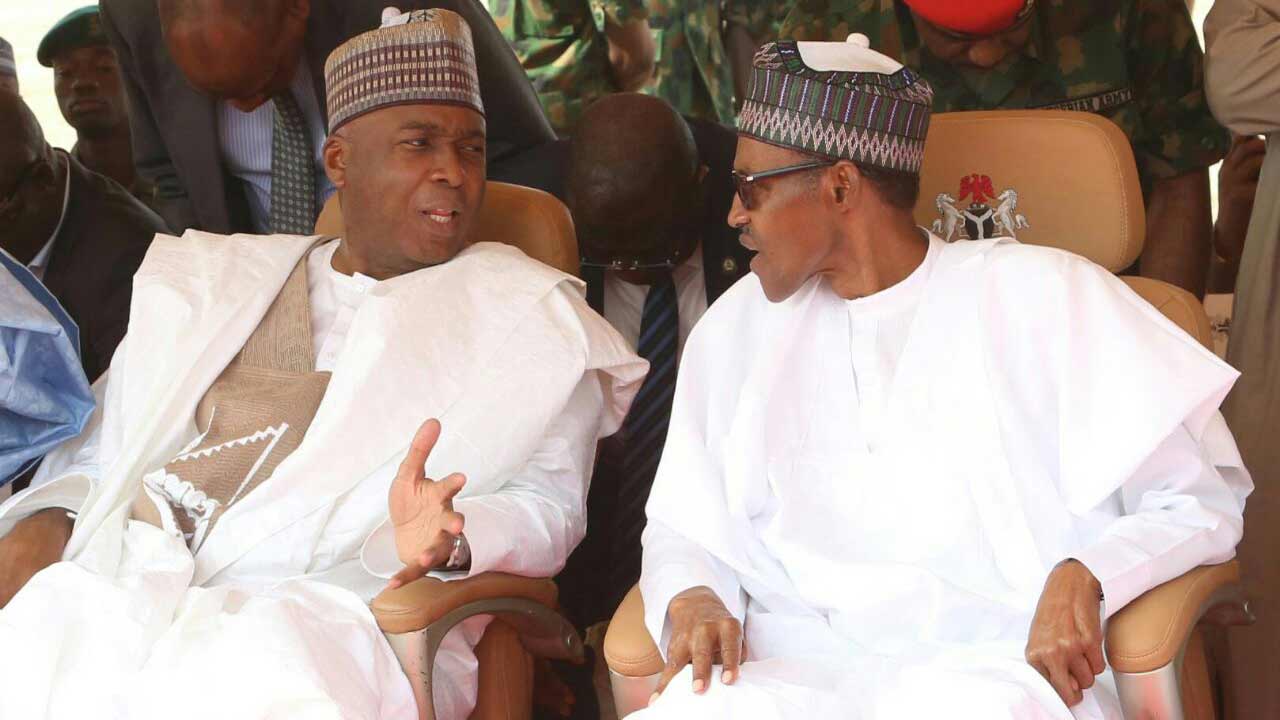
Two things lawmakers can do to ensure passage of electoral bill rejected by Buhari – Saraki
The immediate past President of the Senate, Dr Bukola Saraki, has challenged the National Assembly to be quick in its next line of action fowling President Muhammadu Buhari’s refusal to sign the Electoral Act Amendment Bill.
In a statement on Wednesday, he proposed two critical decisions the lawmakers should make to ensure the bill becomes a law by January.
“Now that Mr President has conveyed his decision to decline assent to the Electoral Act [amendment] Bill, I am sure that I speak on behalf of millions of Nigerians in urging the National Assembly to act fast,” said the former Senate President. “This is because we cannot sit back and allow one contentious clause to throw away all the positives in the proposed Electoral Act [amendment] Bill.
“At this point, two options are open to the National Assembly. They either veto the president’s decline of assent or remove the contentious provision on direct primaries and send it back to the President for his assent.
Whichever option, our legislators choose, can be accomplished in the shortest possible time. We could have a new electoral law in January 2022.”
It was either commendation or criticism for various political players on Tuesday after it was revealed that the President had opted to withhold his assent to the bill.
In the letters read to lawmakers in the Senate and House of Representatives chambers, President Buhari raised concern over the mandatory direct mode of primaries for political parties.
While some governors and groups gave contrary reactions to the President’s decision, the lawmakers in both chambers said they would take definite action after their recess.
Saraki, in his reaction, believes the present mood in the country is the desire to have a new electoral law that will lead to a credible, free, fair, and peaceful process of electing leaders at various levels.
He stressed that Nigerians needed a system that would ensure their votes truly count in the election of those who govern them.
“This proposed electoral law is expected to reassure the youths, many of whom steer clear of the political process because they have no confidence in the system. They believe the system is usually rigged and compromised,” the former Senate President said.
“One way to bring this active demography into the political system is to enact a new law that will give them hope in our nation. This Electoral Act [Amendment] Bill serves that purpose.
“This is why, as the representatives of the Nigerian people, the National Assembly must take a decision in the interest of our nation and its long-term democracy. The option of not doing anything after the refusal of the assent by the President is not an option.”
-

Two Governors back Buhari’s rejection of electoral bill; Falana, CSOs kick
Governors Kayode Fayemi of Ekiti State and his Benue State counterpart, Samuel Orrin have commended President Muhammadu Buhari for refusing assent to the electoral act amendment bill
However, popular human rights lawyer, Femi Falana, SAN, civil society organisations and some federal lawmakers expressed their disappointments at the President’s decision.
After meeting with the President on Tuesday, Ekiti State Governor and Chairman of the Nigeria Governors’ Forum, Kayode Fayemi praised the decision to withhold assent on the electoral bill.
Speaking to State House correspondents after meeting with the President in his office, the Fayemi said it does not matter to the governors which mode is adopted for the conduct of primaries.
The governor, who is also the Chairman of the Nigerian Governors’ Forum, dismissed talks that the President was simply conceding to the wishes of the governors.
While noting that the President’s desire is to see that all options are provided for, there is an exaggerated expectation that direct primaries will resolve electoral challenges in the country.
“I think all of us should be happy with that we shouldn’t really dwell too much on there’s been this exaggerated expectation that direct primaries is going to provide all answers to whatever electoral challenges that we have faced,” he said.
The Governor noted that both direct and indirect primaries have unique challenges and called for options to be provided.
Benue State Governor Ortom also commended the President’s decision.
“I want to use this opportunity again on behalf of people that are represented here in Benue State to commend Mr. President for withholding assent on the process of primaries of various political parties,” he said at a briefing at the end of the meeting of the State Executive Council on Tuesday in Makurdi.
“I am appealing to the National Assembly to reconsider the clause that allows for only direct primaries, and all the reasons that Mr. President advanced concerning the support for him withholding his assent are deeply appreciated.
“I assure you that as a veteran politician who had the privilege to witness direct primaries, witness indirect primaries, and witness consensus primaries, and someone who has the privilege to be a member of various political parties, it was almost unanimous that the issue of primaries should be the responsibility of various political parties.”
Civil Societies condemn President’s decision
Meanwhile, civil society organisations expressed displeasure at the President’s decision not to assent to the bill.
In a statement signed by its Executive Director, Clement Nwankwo, Policy and Legal Advocacy Centre (PLAC) said the situation was “worrying” and “poses a serious threat to the conduct of the forthcoming 2023 Nigerian General Elections.”
However, PLAC urged the National Assembly to review the President’s demands on party primaries “in order to save the other landmark reforms contained in the Electoral Bill 2021, over which the President has expressed no worries.”
“PLAC is also calling on the National Assembly to treat the issue of passing the new Electoral Bill as a matter of national emergency and convene a special session in the shortest possible time and irrespective of their end of year break, to consider a vote for the passage of the Electoral Bill 2021,” the statement added.
Human rights lawyer and a Senior Advocate of Nigeria (SAN), Femi Falana, described President’s Buhari decision as akin to throwing out the baby and the bathwater.
“The reason adduced for the rejection of the Electoral Amendment Bill is grossly misleading,” he said in a statement on Tuesday. “Section 87 of the current Electoral Act provides for either direct or indirect primaries. In fact, the APC used direct primary for the emergence of its presidential candidate in 2019. In other words, President Buhari is a beneficiary of direct primary,” he said.
“By rejecting the Bill on the ground that it provided for direct primary the President decided to throw away the baby and the bathwater. Thus, the President rejected electronic voting which he had endorsed when he admitted that he is a beneficiary of electronic accreditation of voters by the use of card readers.
“With respect, direct primary is in consonance with section 223 of the Constitution which has imposed a duty on political parties to elect their officers through democratic elections. There is no provision in the Constitution for the imposition of candidates by money bags through indirect primaries.
“The INEC has submitted a bill of N305 billion for the entire 2023 general elections. So who conjured the figure of N500 billion for the primaries to give the impression that it is an expensive venture? In any case, since electronic voting had been adopted by the National Assembly it was going to be used for both primary and general elections. So the cost would have been significantly reduced. The fear of insecurity is a red herring in that political parties have continued to hold huge rallies even in defiance of Covid 19 restrictions imposed by the Federal Government.
“Having rejected to assent to the Electoral Amendment Bill in 2018 and 2021, President Buhari has confirmed beyond any shadow of a doubt that his administration will not allow the Independent National Electoral Commission to conduct credible elections in 2023 and thereafter. That is going to be the tragic legacy of the President and the ruling party that were campaigning for electoral reforms before the 2015 general elections.
“The challenge before the National Assembly is to invoke the provision of section 58 (5) of the Constitution to pass the Bill into law by the resolution of two-thirds majority of the members. However, if the national assembly cannot muster the required two-thirds majority, section 87 of the Act which allows direct or indirect primaries should be left intact so that the other provisions of the Electoral Amendment Bill 2021 can be passed again by the legislators and assented to by the President.”
TheNewsGuru.com, TNG report did that the National Assembly had transmitted the bill to the President in November but, in a letter dated December 13 and forwarded to the National Assembly, he informed of his decision to withhold his signature.
In his letter, President Buhari cited several issues with the bill’s clause on direct primaries.
The President, according to the letter, explained that direct primaries are expensive. This, he said, will put a financial burden on the country’s resources.
He further noted that conducting direct primary elections will be tasking, explaining that since such mode of election means a large turnout of voters, the move would stretch the security agencies.
The Nigerian leader equally fears that with direct primaries, citizens’ rights will be violated while smaller political parties may face marginalisation.
According to him, the move will also lead to more litigations by party members.
Senators move to veto President
Senators on Tuesday held closed-door sessions to discuss next steps over the bill.
A Senator of the Peoples Democratic Party, George Sekibo, in an interview with Channels Television said some Senators were considering a veto of the bill.
By law, the National Assembly can bypass presidential assent of a bill into law through a two-third majority vote.
According to Sekibo, a total of 73 signatures have been compiled for the veto.
However, Senate President Lawan adjourned Tuesday’s session till tomorrow (Wednesday) where a decision over the matter is expected to be made.
Reps to take decision next year
At the House of Representatives, deliberations over the bill’s setback was shifted to 2022.
Speaker Femi Gbjabiamila revealed this on Tuesday as the lawmakers went on recess for the Christmas and New Year break.
“As it is now, that bill has not received presidential assent, and it falls to parliament to decide the best way forward,” Gbjabiamila told his colleagues. “When we return in the new year, we will resume our efforts to reform the electoral system in our country; and we will do it together.
“That is what the Nigerian people expect of us, and we will do our duty for God and country. As long as this one breathes, it will survive. When we return, we will address it.”
Gbajabiamila explained that the time was short to address the sensitive issue at hand in haste because members were set to proceed on break, and they must pass other important bills such as the 2022 Appropriation Bill and the Finance Bill before doing so.
He stated that the new bill introduced several innovations, besides direct primaries, to help advance the country’s democracy.
The speaker, who commended the lawmakers for the efforts they made to ensure the passage of the bill, reminded them of the Legislative Agenda of the 9th House, which he said must be followed through to its conclusion.
“In the past, election years have witnessed a decline in governance activities as political pursuits cloud the calendar. That will not be the case this time around. As you are aware, we have a legislative agenda in this 9th House of Representatives, which we tagged ‘Our Contract with Nigerians,” he said.
“I expect that we will do everything within our power to keep the commitments we made in that document so that when we appear before our various constituencies, we can stand tall in the knowledge that despite challenges and difficulties, we did what we promised to do and given a chance again, will do even more.”
-
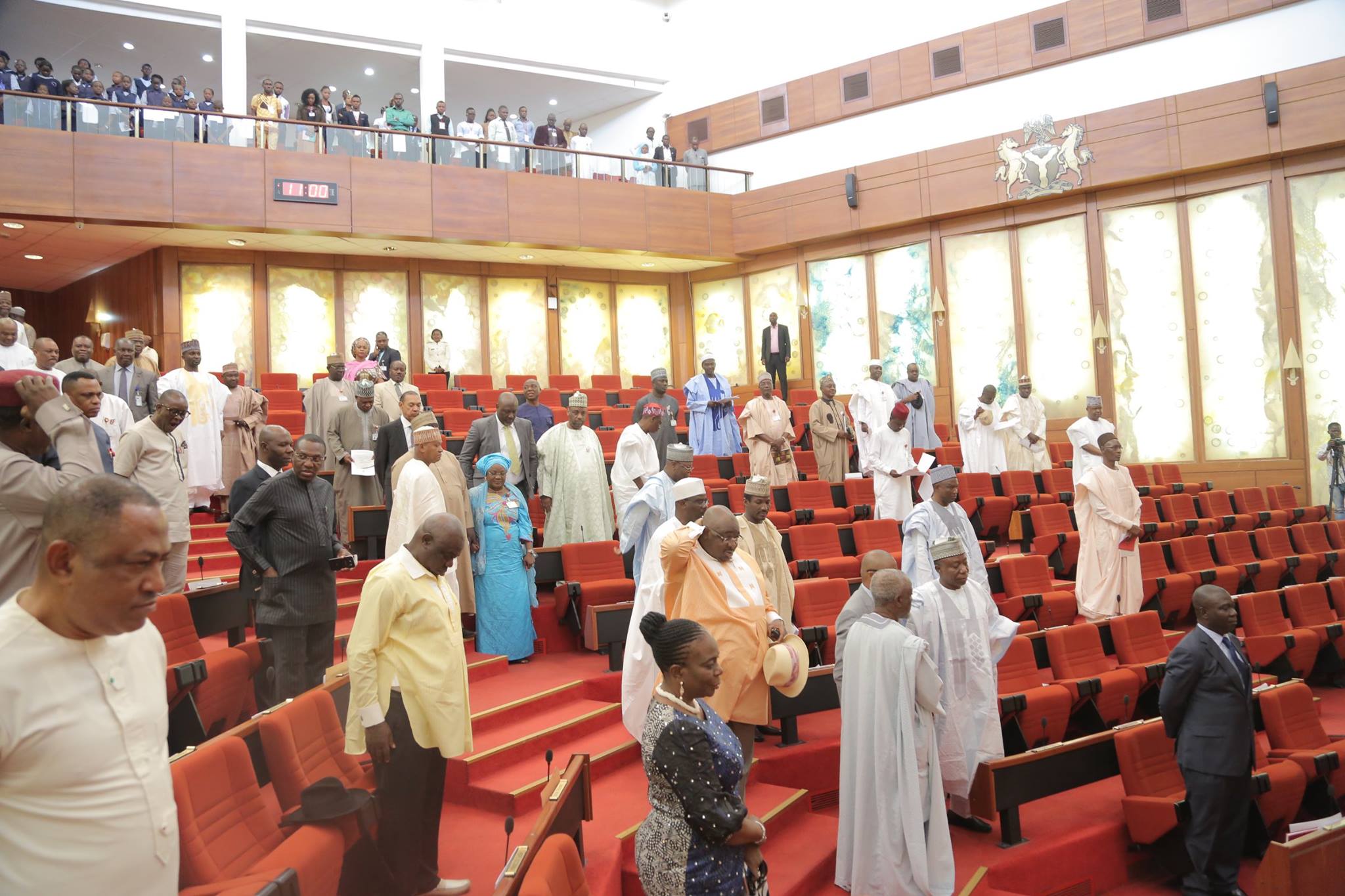
73 out of 109 senators append signatures to veto Buhari over rejection of electoral bill
A federal lawmaker Senator George Sekibo on Tuesday said some senators are planning to veto President Muhammadu Buhari on the electoral act amendment bill.
He said they have compiled 73 signatures to veto the President.
The 109-member Senate will require a two-thirds majority to veto the bill into law.
President Buhari had written the National Assembly to inform them of his decision to withhold his assent on the bill.
According to the President, his decision was informed by advice from relevant Ministries, Departments, and Agencies of Government after a thorough review.
He said signing the bill into law would have serious adverse legal, financial, economic, and security consequences on the country, particularly in view of Nigeria’s peculiarities.
The letter was read on the Senate floor on Tuesday prompting the Senate to go into a closed-door session requested by Senator Sekibo.
Sekibo confirmed the planned veto after the end of the closed-door session.
The Senate also adjourned its session till tomorrow.
-
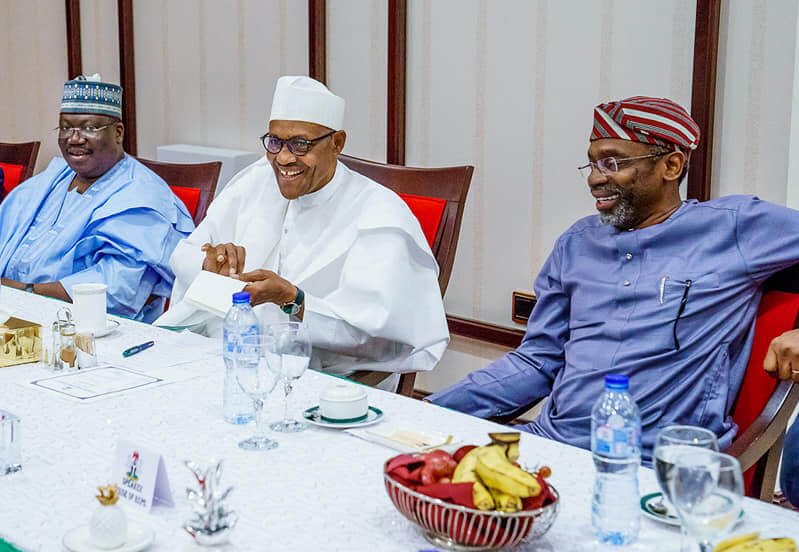
Buhari’s letter declining assent to Electoral Bill read at NASS
The National Assembly on Tuesday read President Muhammadu Buhari’s letter in which he declined assent to the Electoral Act Amendment Bill.
The letter was read at both the Senate and House of Representatives plenary session, a day after reports emerged that Buhari had declined assent to the bill.
Before the letter was read, the Senate had gone into a closed-door session to discuss the content of the document.
After the session, Senator Lawan read the letter in which President Buhari explained the reasons for his action.
In the letter, Buhari cited the direct primaries clause as the reason for his decision.
He argued that the clause throws up several challenges one of which is the cost of conducting direct primaries. According to him, direct primaries will increase the Federal Government’s financial burdens because they are expensive to conduct.
Aside from the cost implication, the Nigerian leader explained that direct primaries will stifle smaller parties and also raise security concerns since there would be a large turnout of voters in such a mode of election.
Buhari added that political parties should decide the best way to pick their candidates for elections, noting that his stance was based on a careful review and consultations.
According to him, the move will also lead to more litigations by party members.
The President’s move ends the debate over the reason for the delay in signing the Electoral Act Amendment Bill.
Critics and high-profile Nigerians had before now speculated over the possible reasons for Buhari’s delay in assenting to the bill.
While some believe it was the direct primaries clause, other like Governor Nyesom Wike claimed it was due to the electronic transmission of results.
Despite the debates generated before Tuesday’s reading of the letter at the National Assembly, presidential aide Garba Shehu had maintained that his principal does not need to explain his stance to the public following the expiration of the 30-day period during which Buhari was expected to sign the bill.
“And as I said, it would be disrespectful of the National Assembly, for me at this time, to say this is the content of the president’s communication, assuming that the communication has been sent to them,” he said on Sunday.
“So as I said, allow them to resume, I believe that the president will not act in breach of the Constitution. No, he will do what is right.
“The constitution says the president must sign within 30 days, the constitution did not say that there should be the disclosure of that decision within 30 days to the public when the disclosure to the National Assembly has been made.”
-
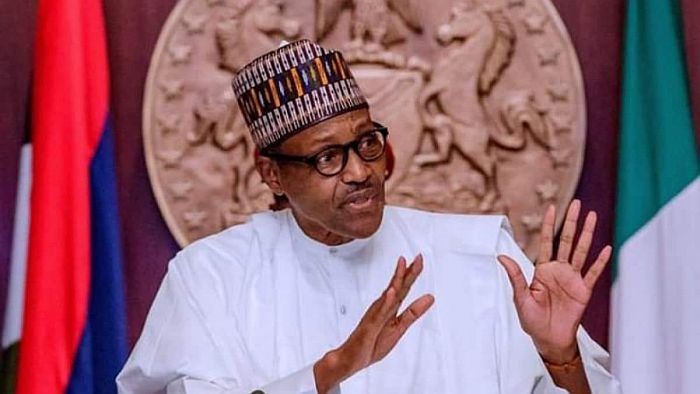
Buhari rejects electoral bill, gives reasons
Indications emerged on Tuesday that President Muhammadu Buhari may decline assent to the 2021 Electoral Act Amendment Bill.
According to sources, the president may hinge his refusal to assent the bill into law on the premises that signing it would cause trouble among the political parties in the country.
According to a report by Vanguard Newspapers, the letter of rejection of the bill, which is before the President of the Senate, Senator Ahmad Lawan, will be read on Tuesday at plenary.
According to the paper’s source, the President refused assent to it against the backdrop that the parties have their various constitutions that indicate that primaries should be conducted either directly or indirectly.
And until such provisions are amended, asking parties to do that through direct means would mean forcing the parties to conduct primaries through direct means which, according to President Buhari, amounts to abuse of the constitution of the party.
The source said: “With all these reasons given by the President, he has returned the bill to the National Assembly, asking the lawmakers to look at the clause that has to do with direct primaries by political parties, work on it and return the document for assent.
There are strong indications that the Senate will be turbulent as the Senators will take a decision on the growing uncertainty in the political atmosphere as the 30 days’ deadline for President Muhammadu Buhari to sign the Electoral Act Bill elapsed on Sunday.
Speaking with newsmen under condition of anonymity, a Senator said: “We have the number to override Buhari’s veto.
“But with Senator Lawan, as the President of the Senate, it will be difficult because he operates the Senate as an extension of the Presidency.”
On his part, Senator Matthew Urhoghide (PDP, Edo South) who spoke with the paper urged the National Assembly to extricate itself from what he described as public odium and disrespect by going ahead to override President Buhari who is All Progressives Congress, APC, just as he said that history stares NASS in the face if indeed it is not a rubber stamp.
Senator Urhoghide said: “We must be reminded that members of the National Assembly are truly the representatives of the people because every constituency and senatorial district seat is allocated to a segment of the Nigerian people who are their constituents.
“The members of the National Assembly consulted with a cross section of their constituents to reach an informed position on any matter of national interest and development.
“The issue of direct primaries in our electoral process has been well canvassed, elucidated, and argued by both chambers and inputs were taken at public hearing from across the spectrum of all critical stakeholders.
“The bane has always been that the greater majority of party members do not have the privilege or right to choose who becomes the party candidate in an election.
“Hitherto, it was the exclusive preserve of the power holders or deep pockets who would always want to control the party.
“The time has come when only popular candidates within the party should be thrown up for general elections.”
-
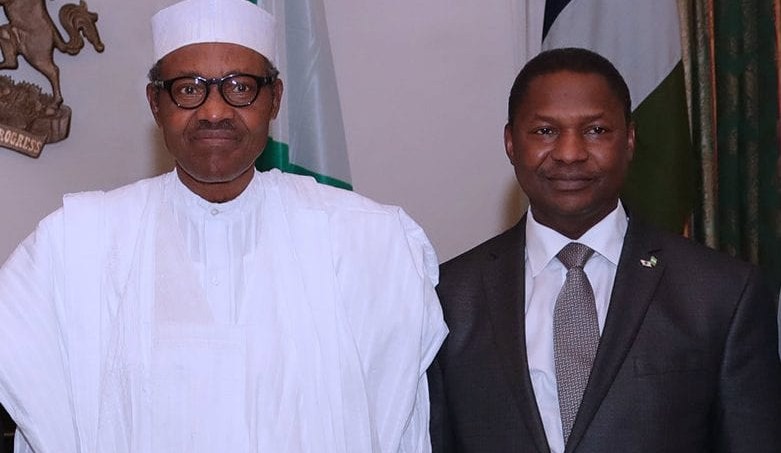
Direct primaries: Malami cautions Buhari against assenting electoral bill, gives reasons
The Attorney-General of the Federation, Abubakar Malami (SAN), has written President Muhammadu Buhari on the challenges that may be associated with the inclusion of mandatory direct primaries in the Electoral Act amendment bill.
According to reports, the AGF in letter to the president about two weeks ago advised the president that making direct primaries mandatory for all political parties could cause confusion.
The Special Adviser to the President on Media and Publicity, Garba Shehu, confirmed that the President had received a communication from Malami on the bill.
He however said he was not privy to the content of the letter.
“Yes. I can confirm that the President has received a communication from the honourable minister on the matter but honestly, I am not privy to the content of the communication. I have not been briefed,” the presidential aide told Punch Newspapers.
Meanwhile, a source at the Ministry of Justice said the minister highlighted the grey areas of the bill in his letter to the president. “The AGF has sent his advice on the Electoral Act amendment bill to the President. He has highlighted the problems of the bill.
“The AGF, however, did not quote any section of the law that makes it illegal which is unlike the previous letters he writes to the President.”
Another source close to the AGF said he (Malami) was worried that forcing all parties to adopt the direct mode of primary would mean that all existing parties would have to change their constitutions.
The source stated, “The office of the AGF sent its position two weeks ago. They raised a number of issues. For instance, if you are asking political parties to run direct primaries, from a strictly legal point of view that would mean that only new political parties will be bound by the law.
“Existing political parties will not, because they have registered their parties, they have filed their constitution long time ago on the basis of what is contained there. And most of it is a mixture, if you check the parties, direct and indirect primaries are stated.
“So, are you going to change their constitutions for them? So, this is the legal opinion. But this is just one. There are several other legal positions which favours and disfavours the bill because, as the Minister of Justice, his duty is to tell the president the pros and the cons. It is now up to the President to decide on which way to go.”
-
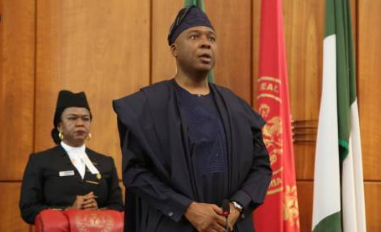
Electoral Act: Saraki calls for more transparent electoral system
Former Senate President, Dr. Abubakar Bukola Saraki, has called on President Muhammadu Buhari to sign the electoral amendment act, saying that it will help ensure that Nigeria’s elections are freer, fairer, and more transparent.
In a video released on his social media handles, Saraki, whose 8th Senate passed amendments to the electoral act four times between 2015 and 2019, emphasized that President Buhari has said that he wants to be the President that leaves behind stronger democratic institutions, therefore, by signing the electoral act, the President can “leave behind a stronger democracy than his predecessors.”
Saraki said:
“Nigeria, as a leader on the African continent, must always ensure that the voice of all Nigerians — especially our young people — will be truly heard in Government. This can only happen when our electoral laws are seen to have integrity.
“We all want to build a nation with strong democratic values that instill confidence in investors. This all begins with having a sound electoral act.
“The amended electoral act on the President’s desk has about 25 amendments. Out of this, it is only 4 subsections on direct primaries that are contentious.
“Anyways, not all laws are perfect. Nigeria’s democracy stands to gain so much more from the other amendments, than what it will lose from the 4 contentious subsections.
“As Mr. President has said at several fora, he hopes to leave behind a stronger democracy than his predecessors. This is why, like millions of Nigerians and our friends in the international community, I strongly believe that this law will give our nation a framework that ensures that we have a fairer and more transparent electoral system,” the former Senate President said.
TWITTER VIDEO: https://twitter.com/bukolasaraki/status/1470647136266162178?s=21
INSTAGRAM VIDEO: https://www.instagram.com/p/CXdD5YQuP98/?utm_medium=copy_link
FACEBOOK VIDEO: https://fb.watch/9U1VE9i7kY/
-

Why Buhari is yet to sign electoral bill into law four weeks after passage – Presidency
The Presidency has explained why President Muhammadu Buhari is yet to sign the electoral bill into law four weeks after passage by the National Assembly.
According to the presidency, President Buhari will take action that is in the overall interest of the masses at the appropriate time.
TheNewsGuru.com, TNG reports that the National Assembly had on November 19 transmitted the bill to President Buhari for assent in pursuance of Section 58 (3) of the 1999 Constitution of the Federal Republic of Nigeria as amended and the Acts Authentication Act 2004.
However, the President is yet to sign the bill into law, four weeks after the Senate and the House of Representatives passed the Electoral Act Amendment Bill and approved the electronic transmission of results.
The Special Adviser to the President on Media and Publicity, Femi Adesina on Monday in a monitored interview on Channels Television said his principal is currently consulting with all stakeholders, including the Independent National Electoral Commission (INEC) before making his position known on the issue.
While noting that his principal cannot be preempted, Adesina noted that the President would decide on the pending bill at the appropriate time.
“The President is consulting, he has to consult with all the stakeholders and then arrive at a position that is best for the country,” he stated.
“Part of that consultation was the communication with INEC and there are other stakeholders that have also been reached for positions and counsel on that. At the end of the day, Mr. President would aggregate all of it and what is best for the country is what he will do.”
Although he didn’t specify a timeframe, the presidential spokesman explained that the Minister of Justice and Attorney General of the Federation, Abubakar Malami is being carried along by the President as far as the bill is concerned.
When asked if the President would sign the bill or reject the document, Adesina did not reply in the affirmative or negative.
Rather, he stated that his principal who is there to ensure that processes are enhanced in the country, believes that the new law would boost the nation’s electoral process, hence would look at the bill very critically.
-
The Storm, Party Rebels and The Electoral Bill, By Azu Ishiekwene
Azu Ishiekwene
Last week, the country was engulfed in a mutiny across party lines. After members of the National Assembly surreptitiously inserted a provision in the Electoral Act Amendment Bill calling for direct party primaries, governors, who rarely agree on anything except money, cried foul. They loaded their guns and opened verbal fire on members of the National Assembly for being clever by half.
The governors know what they are doing. The Senate, for example, is their unofficial retirement home and the road to this lair begins with the party primaries. Roughly half of the 22 second-term governors have their eyes on the Presidency or Vice Presidency.
The other half have their eyes on the Senate, where 17 former governors – 12 from the ruling All Progressives Congress (APC), and five from the opposition Peoples Democratic Party (PDP) – are currently cosseted.
They would not get there by sending roses to the party rank and file. Because they know where the dead bodies are buried, the governors reminded the lawmakers that while it may now be convenient to claim that they have seen the light, they were also beneficiaries of the wheeling and dealing of the indirect primary system, whatever its limitations.
Instead of pretending that this electoral ambush is for the greater good of the party rank and file, the lawmakers may as well climb down their high horses, admit that they hope that indirect primaries would save them from the tyranny which they once inflicted on others, and then go and sin some more.
As a matter of strategy, however, senators in their midst have left House Speaker, Femi Gbajabiamila, to champion the cause. The Speaker has spoken eloquently about how direct primaries would broaden party members’ franchise and produce candidates who truly reflect the confidence and legitimacy lacking in the prevalent system of indirect primaries.
He has, of course, been silent on the double standards of current beneficiaries who are rooting for a system other than the one that produced them. Or the root of the problem. Things fell apart between the National Assembly members and governors when the latter refused to guarantee automatic tickets for returning lawmakers.
In retaliation, the lawmakers, including Gbajabiamilabelieved to be interested in the seat of their governors, decided to take their fate in their own hands by striking below the belt.
Kogi State Governor Yahaya Bello has weighed in. He said the problem is not with governors who obviously prefer to retain the indirect system, but with the huge financial burden that direct primaries may place on the Independent National Electoral Commission (INEC), and also, the chances that such a system would put smaller parties at a disadvantage. He did not say how.
The interesting thing about how both sides have framed the debate is their skill at hiding the facts in plain sight. National Assembly members, rooting for direct primaries, want to secure their freedom from the control of state governors who currently maintain a vice grip on the party in the states.
Governors fund the party. They decide who gets on the list of state or federal appointments or who gets what contract or party ticket. The governor is the state and the state is the governor. And when their tenure ends, they bump off any surrogates in the National Assembly who may be occupying their constituency seat and then take their place in the exclusive club.
Indirect primaries lend themselves more easily to abuse and the tyranny of state governors and tin gods who have the party machinery in their pockets. The qualifications of a potential candidate are not necessarily competence, character or vision. It is, on the whole, the ability to pay crooked courtesies among which back-stabbing, bribing, ego-massage, and running odd errands, are premium attributes.
For governors to relent and concede to a more open, transparent system would be to lose control and to hand the field over to their adversaries, when they are currently responsible for nearly 100 percent of party funding.
When Bello – or any of the governors – says, for example, that he is sorry for the extra financial burden or logistical nightmare direct primaries could mean for INEC, that’s only partly true.
Direct primaries, according to some estimates, could increase the commission’s monitoring cost by a quarter, since in the absence of a volunteer culture, INEC would have to send staff to all 8809 wards.
Yet, it would not kill the commission’s officials at other levels of redundancy, who are virtually on holiday for most parts of the year. It will also be putting the cart before the horse to assume that INEC would spend a fortune to monitor direct primaries when we know that the parties have dubious membership registers. In other words, the problem may have been maliciously overestimated.
Multiple sources told me that currently, governors spend between N8 billion and N10 billion to pay delegates during indirect primaries at a going rate of about N1.2 million per delegate. If you multiply that at ward, state and national primaries, you would find that the indirect system is only the lesser of two evils for its rottenness.
Yet, we have also seen from the examples of the chaos of direct primaries in 2019 in APC in Lagos, Ogun, Abuja, Akwa Ibom, Bauchi, Cross River, Kano, Niger, Taraba, Zamfara – and even the recent one that produced Andy Uba in Anambra – how bogus party membership registers were deployed. Our politicians will subvert any system just to produce the results they want.
There are other reasons why it may be a waste of time to split hairs over primaries – direct or indirect. To even get to that stage, a candidate would first have to pass the party’s screening, since only candidates who have been successfully screened can contest the primaries.
As long as party structures are in the hands of governors and party godfathers, all discussions about primaries are a waste of time. And the structures will continue to be in the hands of governors and godfathers until citizens sufficiently mobilise themselves to invest in the parties from the grassroots – schools, markets, clubs, town halls and so on.
It’s foolhardy to pretend that governors and godfathers will fund political parties only to hand them over to their adversaries or idealistic bystanders during elections. It won’t happen.
And there is the risk that the noise over primaries may also drown other important changes made in the electoral act amendment bill. For example, the bill addresses the cost of politics by capping the cost of nomination and campaign expenses and also increases the penalty for vote-buying, an epidemic which makes every election time Christmas time.
The bill settles the legitimacy of the use of biometrics, too. Diverse legal interpretations of the legitimacy of the biometric system have been at the heart of a good number of post-election limitations, perhaps the most rancorous in recent times being the contest between Nyesom Wike v Dakuku Peterside & others.
In its ruling, the Supreme Court set aside the judgement of the court of appeal that the non-use of the card reader, going by INEC’s regulation, significantly invalidated the votes. It was an extraordinary attempt to find a common ground between convenience and pragmatism on the one hand, and the rule of mischief and jurisprudence on the other. The court ended up making a distinction without a difference.
And, of course, in the midst of their turf war with governors over primaries, the lawmakers still managed to concede, in the bill, that however elevated their testosterone levels might be, they cannot share the statutory responsibility for transmitting results electronically with INEC. It was indeed a rare moment of introspection, as they reversed themselves and agreed that INEC could solely and immediately commence this important function.
On the whole, the system of primaries managed to supplant other important items in the bill, not because of its intrinsic value, but because as far as primordial self-interest goes, it offers the biggest nuisance value. But until the internal party structures change – and that means more citizens in the party rank and file putting their money where their mouth is – the noise about party primaries means nothing.
The rebellion is a storm in a teacup.
Ishiekwene is the Editor-In-Chief of LEADERSHIP